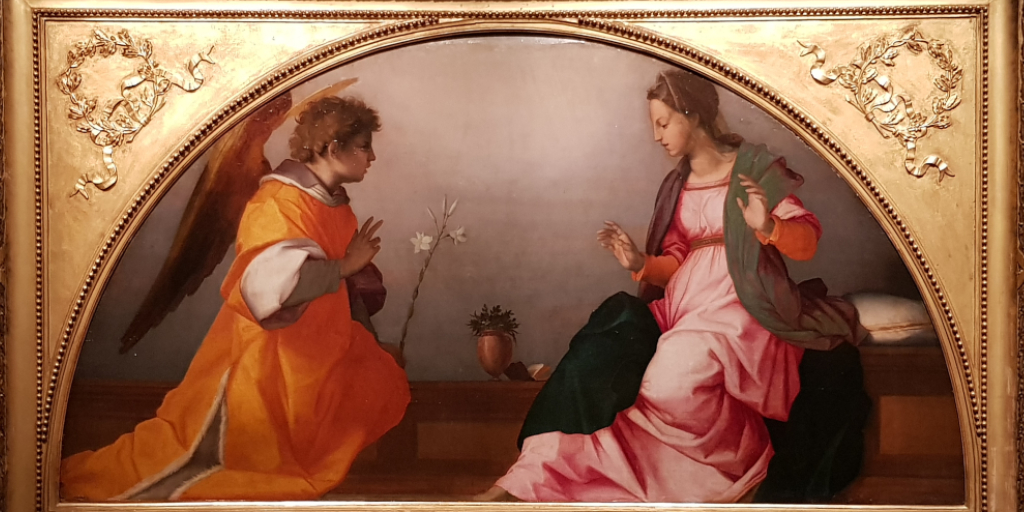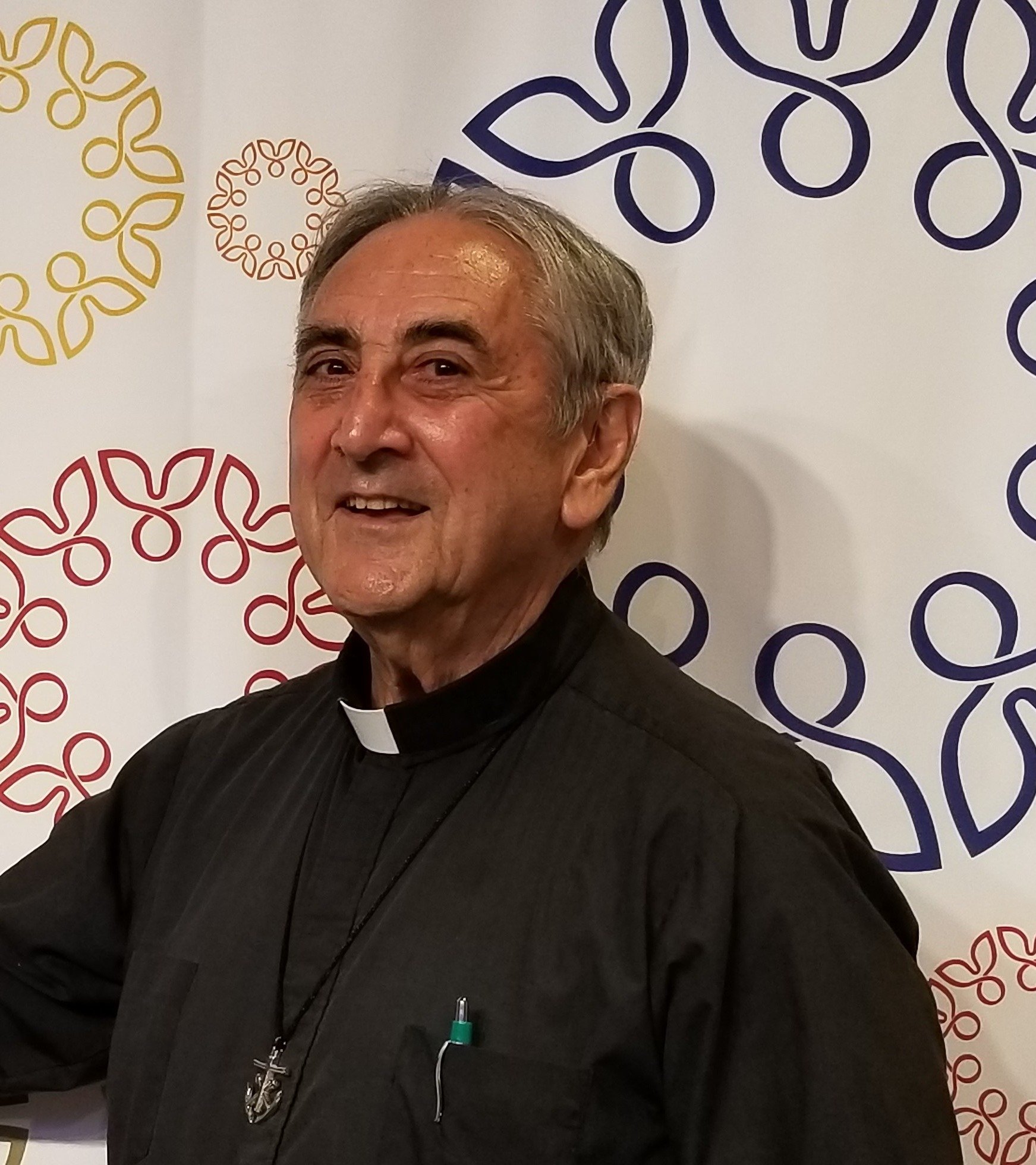
As we celebrate the Annunciation of the Lord, Fr. Leo Polselli focuses not only on Mary’s yes but on the yes of all mothers.
I received a letter the other day from a mother who was in my graduating class at Stonehill College, the Class of 1962. She commented on a homily I wrote but also on my singing at Mass, and wanted to know why I never joined the Glee Club. She shared a little about herself since our college days; she gave birth to five sons, but after 24 years of marriage her husband left her. She joined the work force but also joined a group for divorced parents and met a wonderful man at the meetings. As a couple, they led this meeting for four years. He received an annulment; they married and were together for 27 years until his death several years ago.
Together as a couple, they had 13 children in a blended family. At his funeral she said all 13 adult children, grandchildren, and relatives from both sides cried, which for her was a sign that their blended family had worked.
I tell you this story because I want to focus, in this celebration of the Annunciation of the Lord, not only on Mary’s yes but on the yes of all mothers who allow a child to be born in their womb.
During the opening prayer at Mass I prayed,
O God, who willed that your Word should take on the reality of human flesh in the womb of the Virgin Mary, that we who confess you to be both God and man may merit to become partakers even in his divine nature.
The prayer summarized what this feast is about.
God willed something. He wanted something. He wanted the Second Person of the Trinity to take on a human form, to become a man, and He willed or wanted us to take on the attributes of His Son’s divine nature. He wanted His son to be born in the womb of a woman. Mary was singled out, and we all know by heart how it happened, and about her yes.
In the Letter to the Hebrews we heard it said that when Christ came into the world, He declared there was to be no more animal sacrifices, no sacrificial blood. That was the old law. Then He said He came to do God’s will. What will? To come in the flesh. He declared the old law of blood offerings to be null and void and offered Himself as the only sacrifice once and for all. He fulfilled the will of God that we heard spoken of in the opening prayer of the Mass. In fulfilling this will, newborn humans would now share in Christ’s humanity and divinity through His passion, death, and resurrection.
How could this be? We heard how. Isaiah announced it. Isaiah proclaimed the Annunciation when he spoke about a virgin, an unmarried woman who would conceive and bear a son, and He would be called Emmanuel, which means "God is with us."
We know the rest of the story by heart. We have heard Luke’s account and marvel each time at the YES of the young virgin. It is a story beyond comprehension but when laid bare it details that God wanted His Son to come among us, to be born of a woman, and for us to share in His Son’s life.
The mother I describe to you earlier, like Mary, also experienced the Annunciation. The five sons conceived in her womb, once baptized, received the Holy Spirit and were infused with God’s grace and today are partakers in His divine nature.
Copyright 2021 Fr. Leo Polselli, C.S.C.
Image: Allessandro Allori, Annonciation, Wikimedia Commons, CC BY SA 4.0
About the Author

Father Leo Polselli, C.S.C.
Father Leo Polselli, C.S.C. is Chaplain at the Father Peyton Center in Easton, MA. Before coming to Holy Cross Family Ministries he served as a teacher and a parish priest. He also served for six years as a General Assistant of the Congregation in Rome, Italy. Originally from Fall River, MA, Father Leo grew up with eight siblings. Gifted with several languages, he is able to serve the Brazilian, Cape Verdean, Portuguese, Spanish and Haitian communities. When he's not greeting everyone who comes to the Father Peyton Center, you can find him regularly reading newspapers!


.png?width=1806&height=731&name=CatholicMom_hcfm_logo1_pos_871c_2728c%20(002).png)
Comments